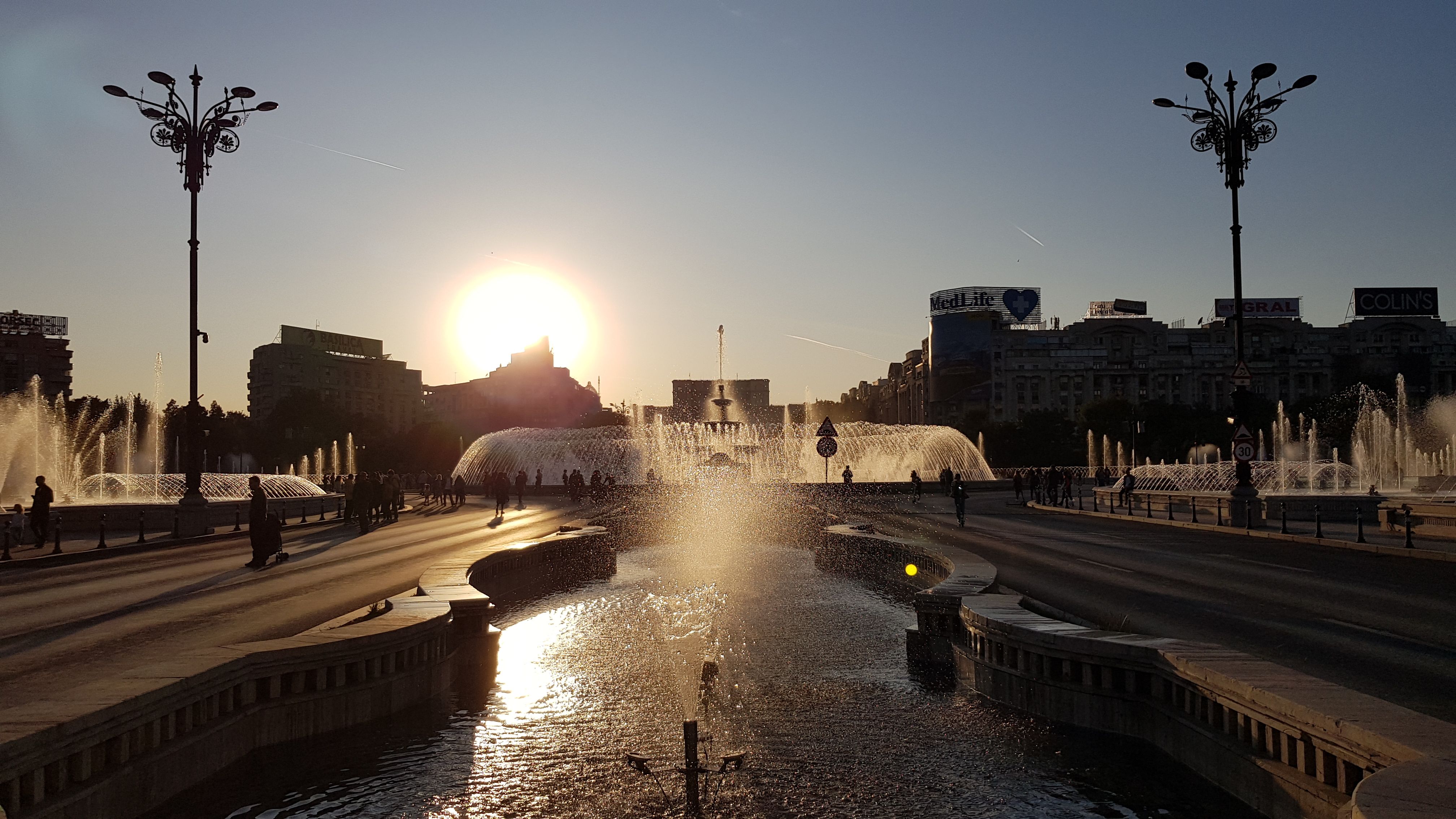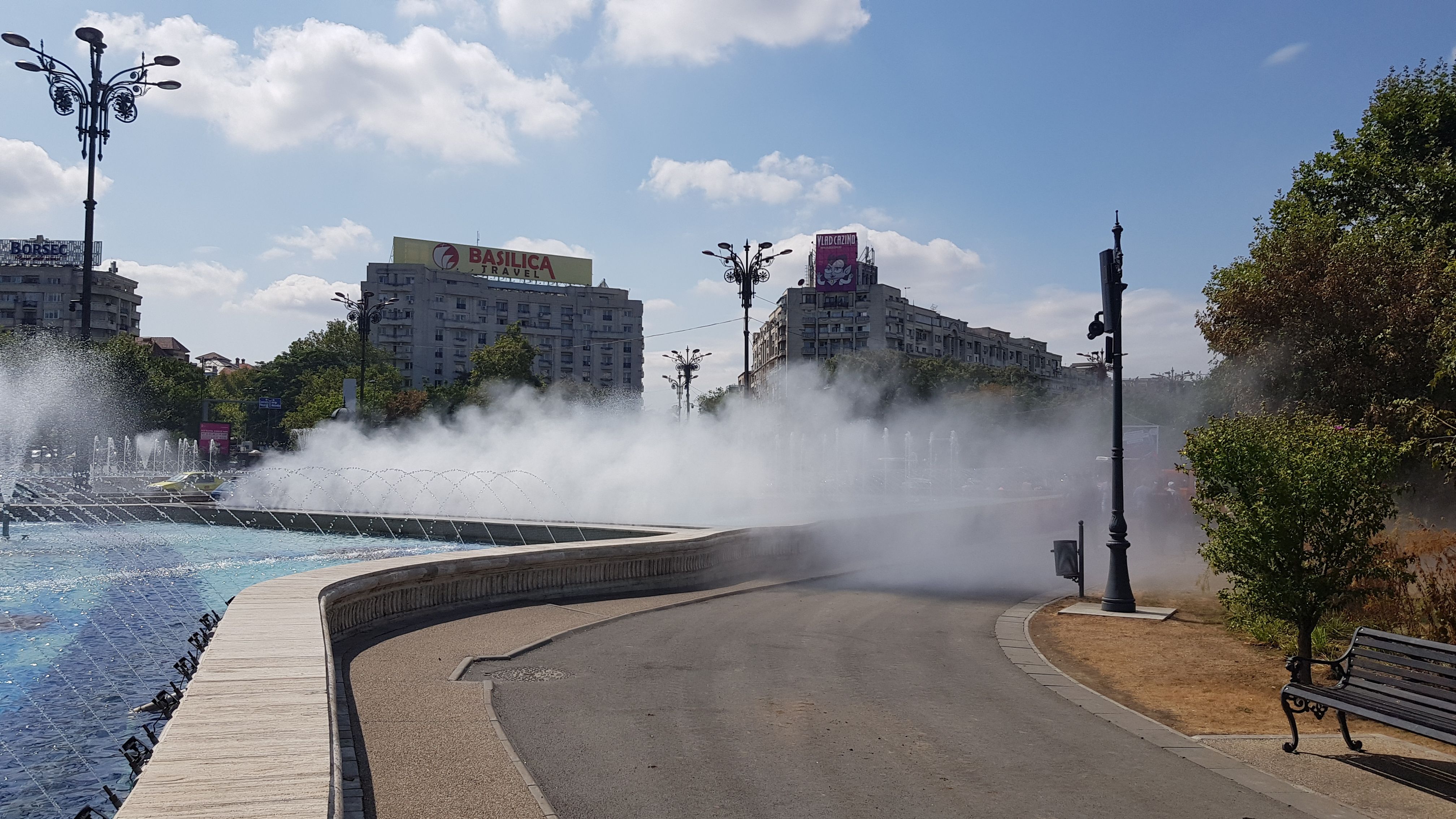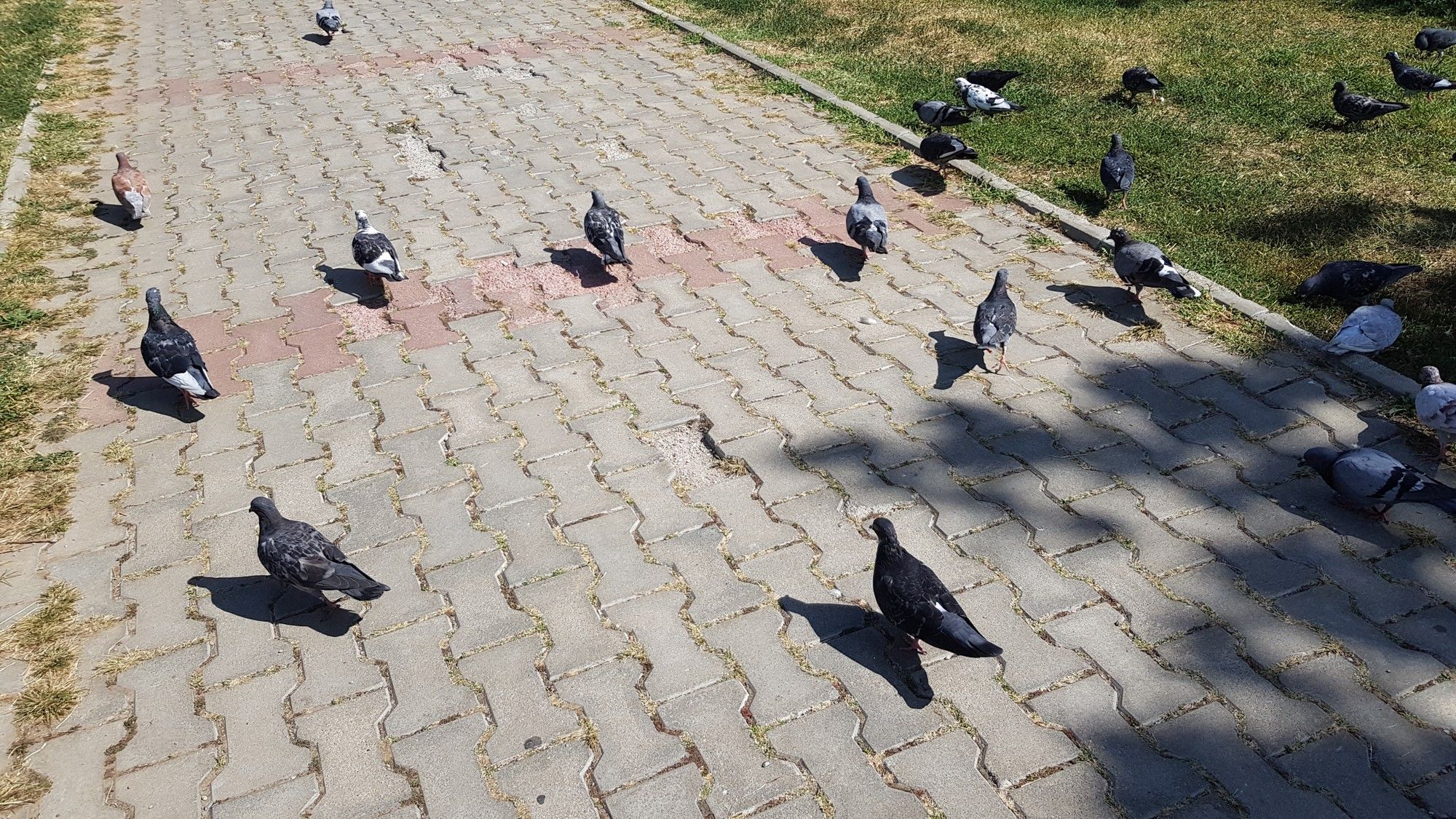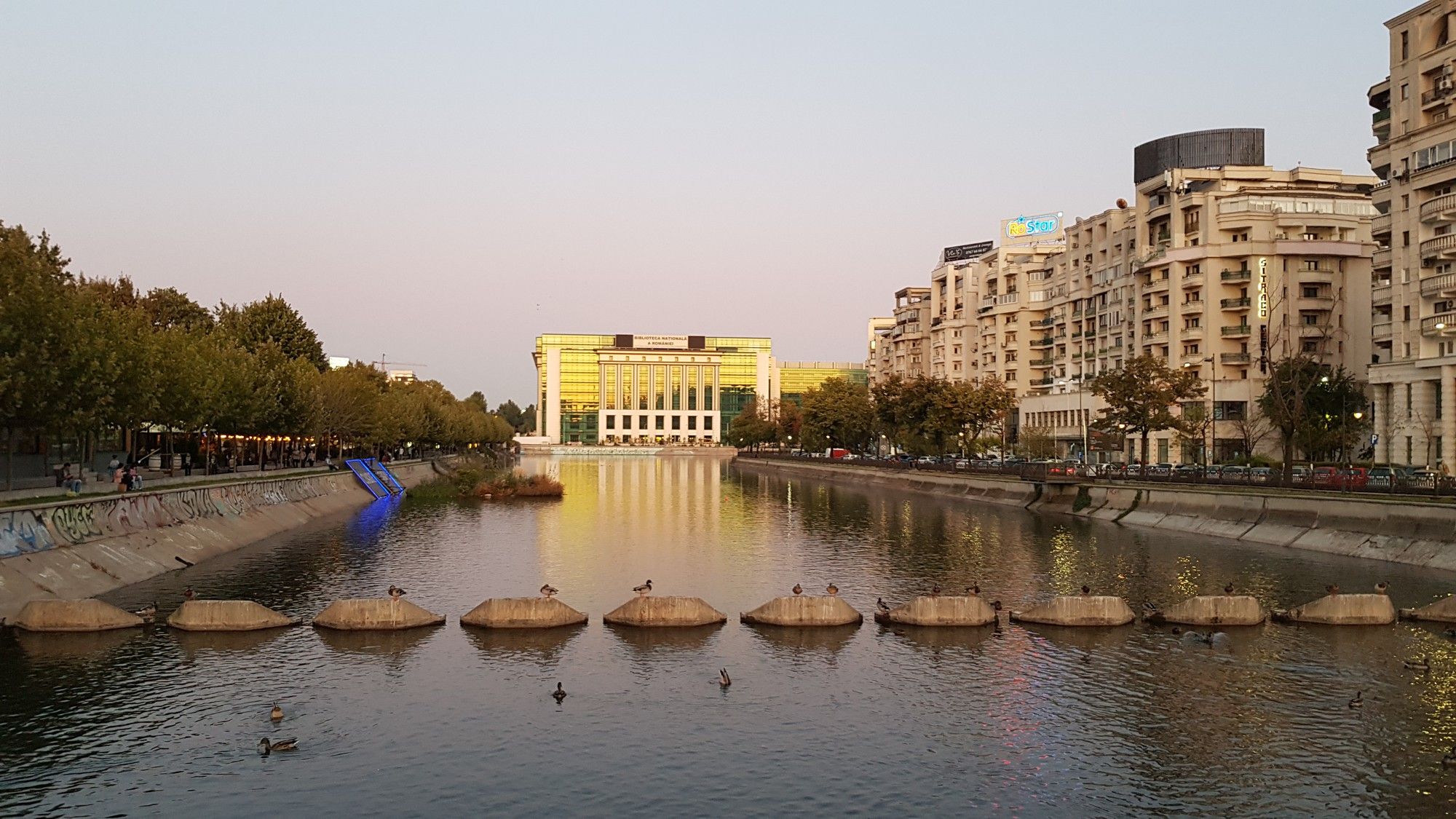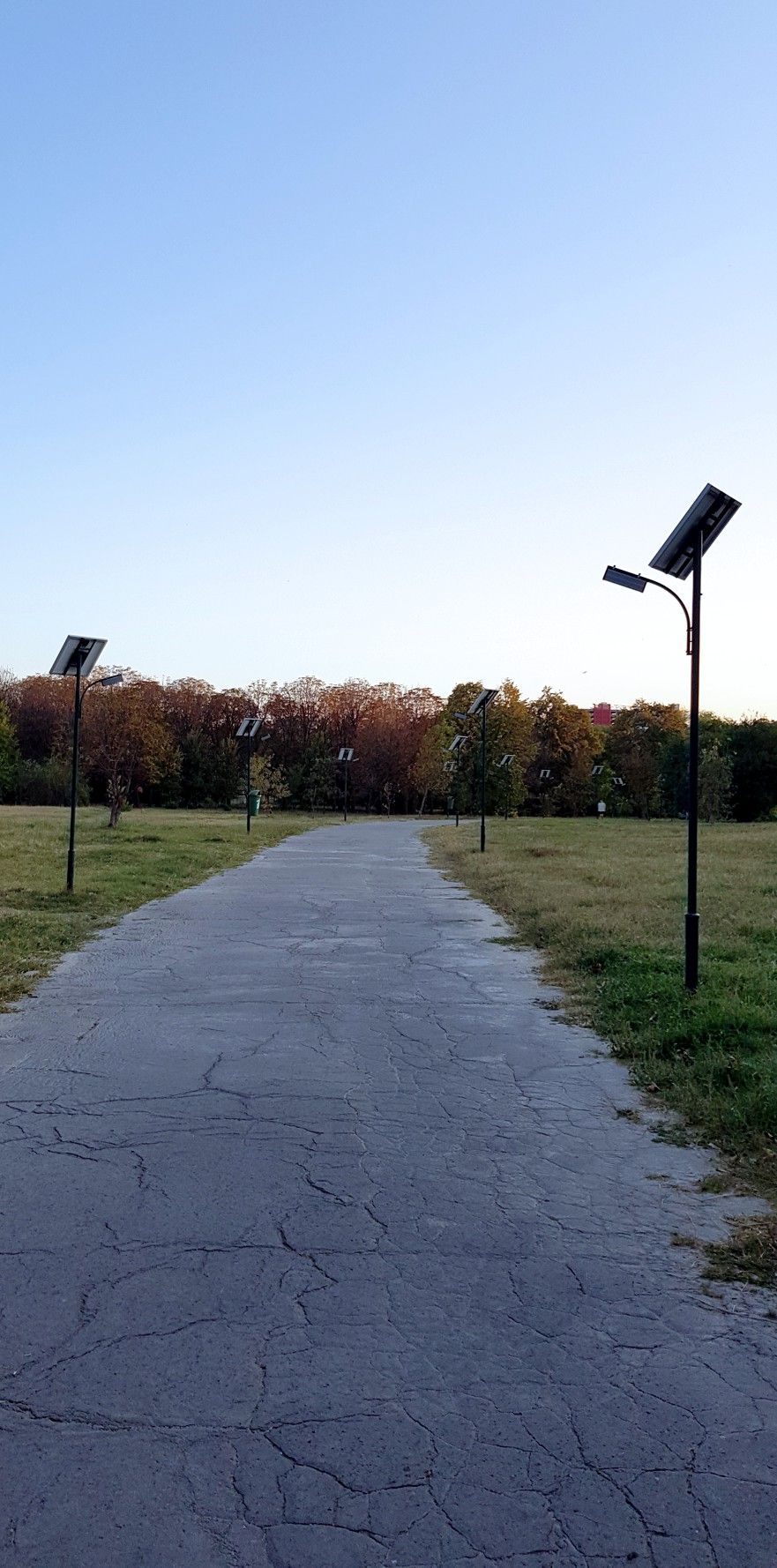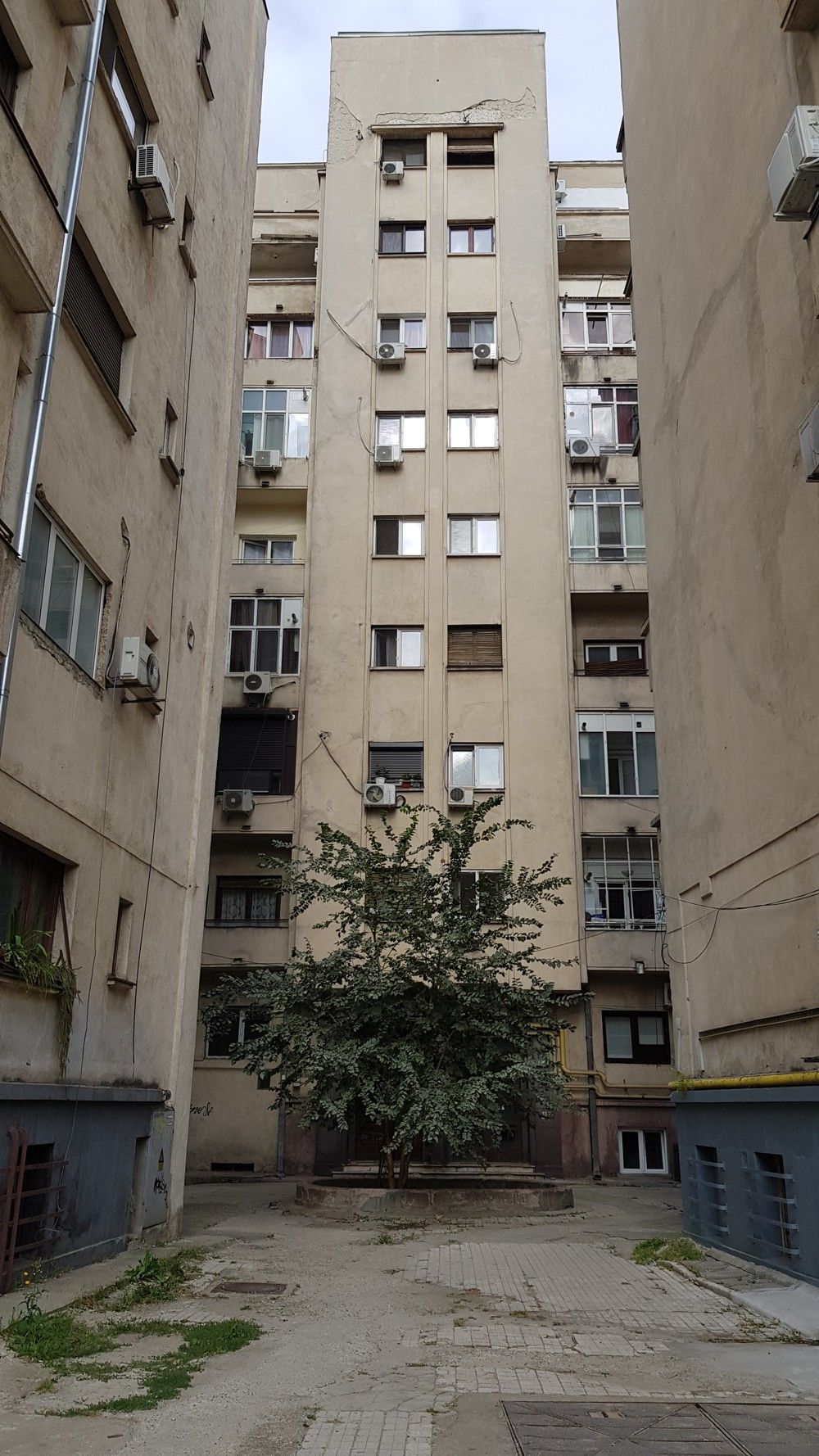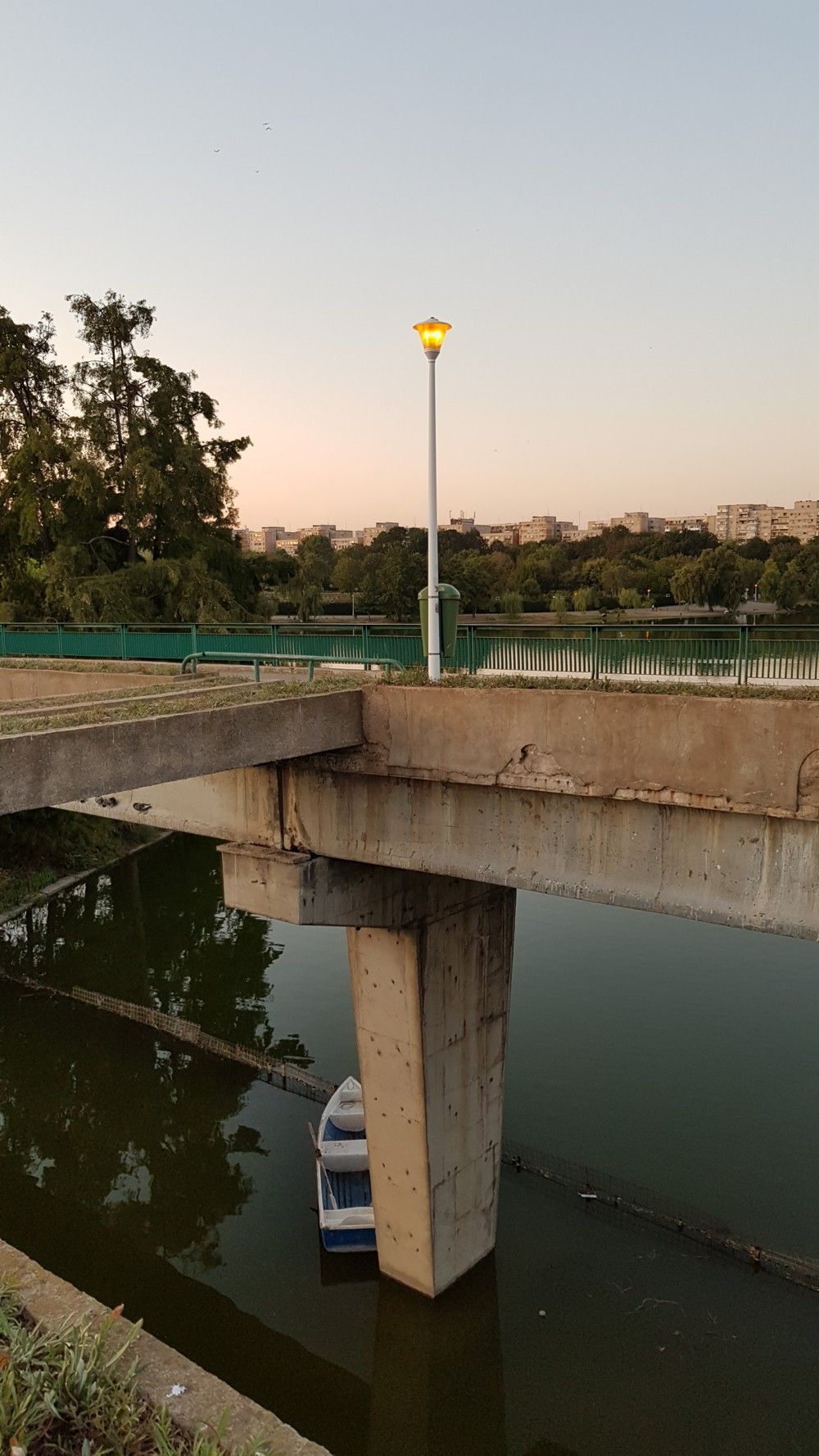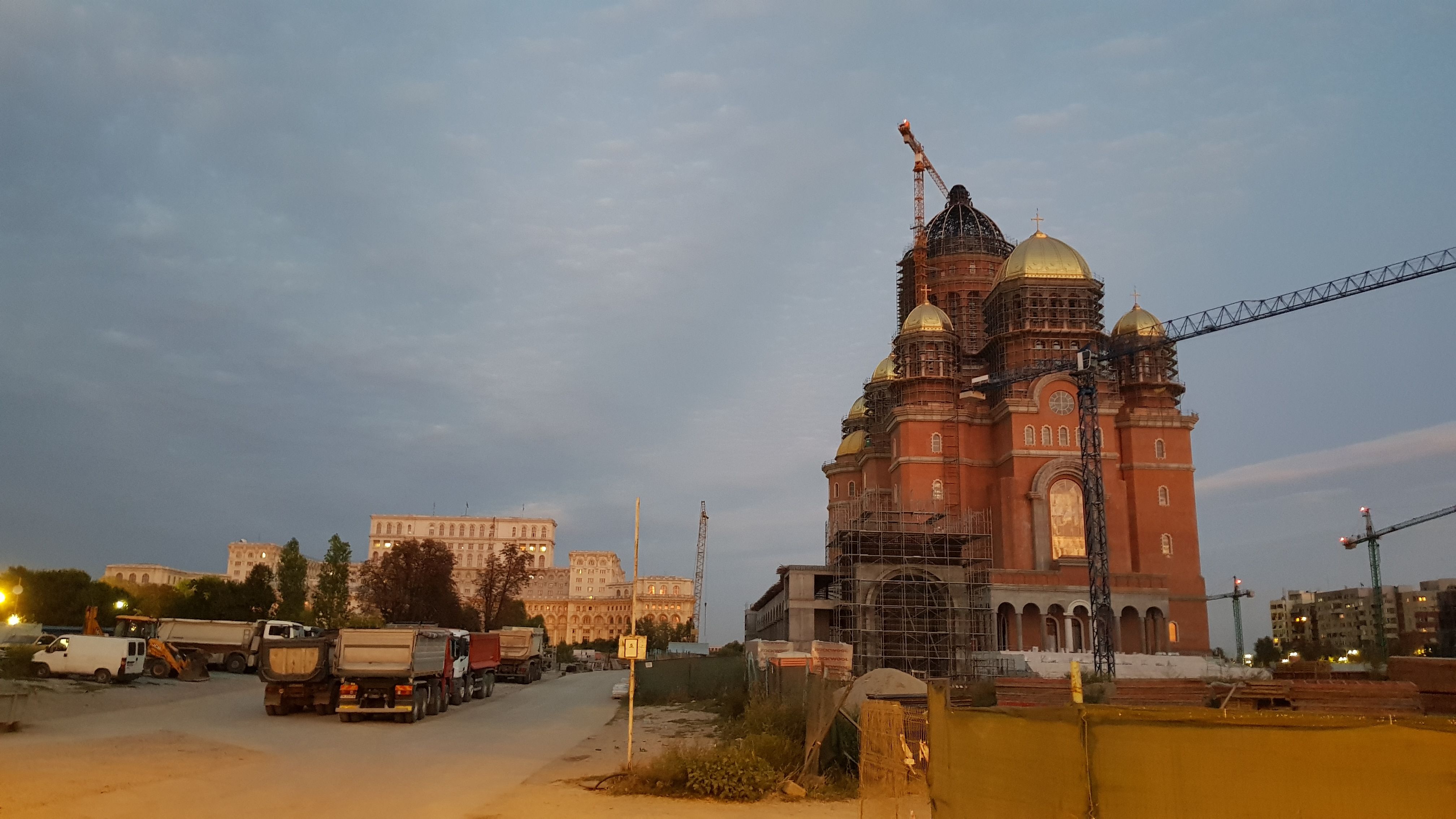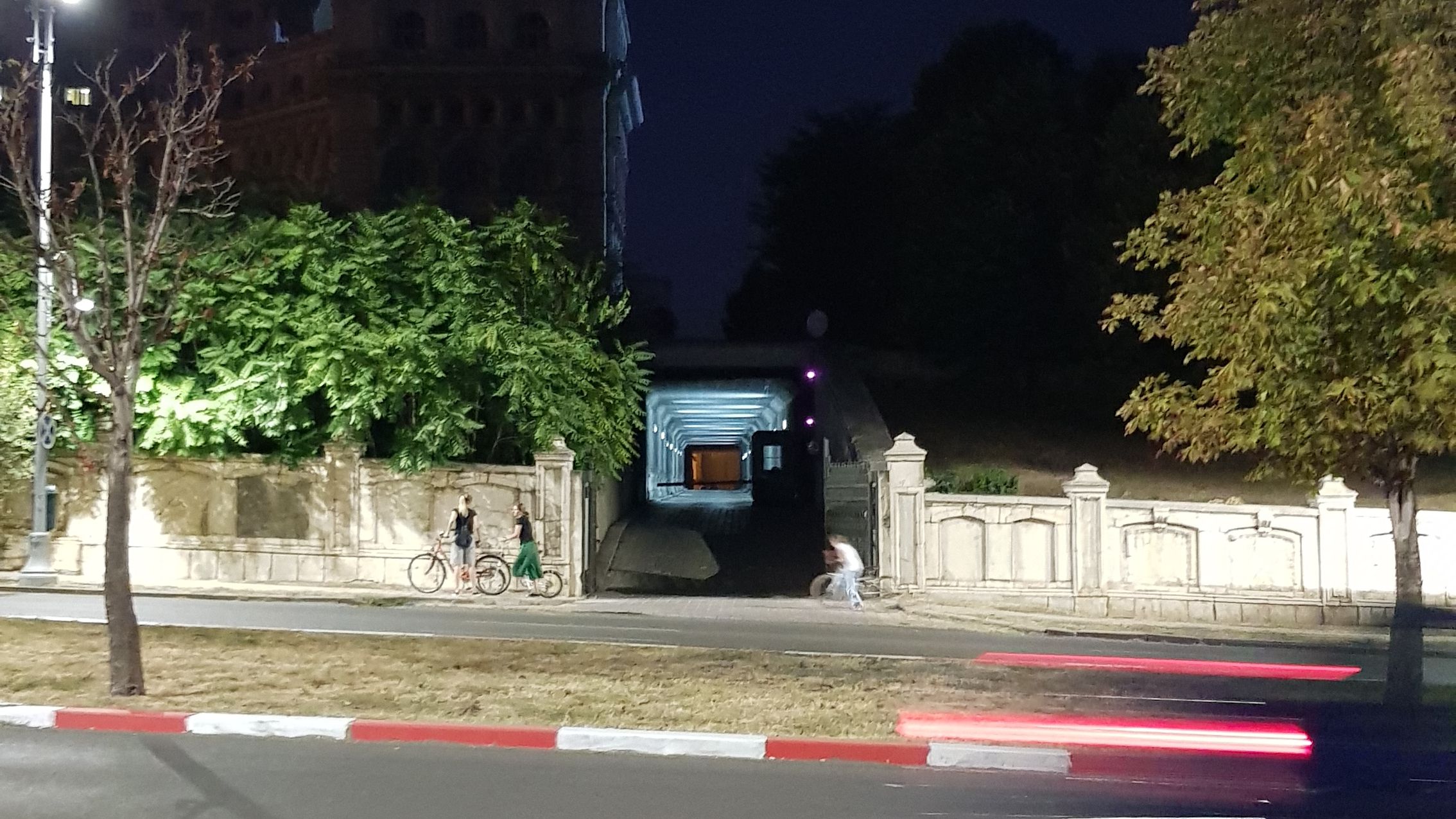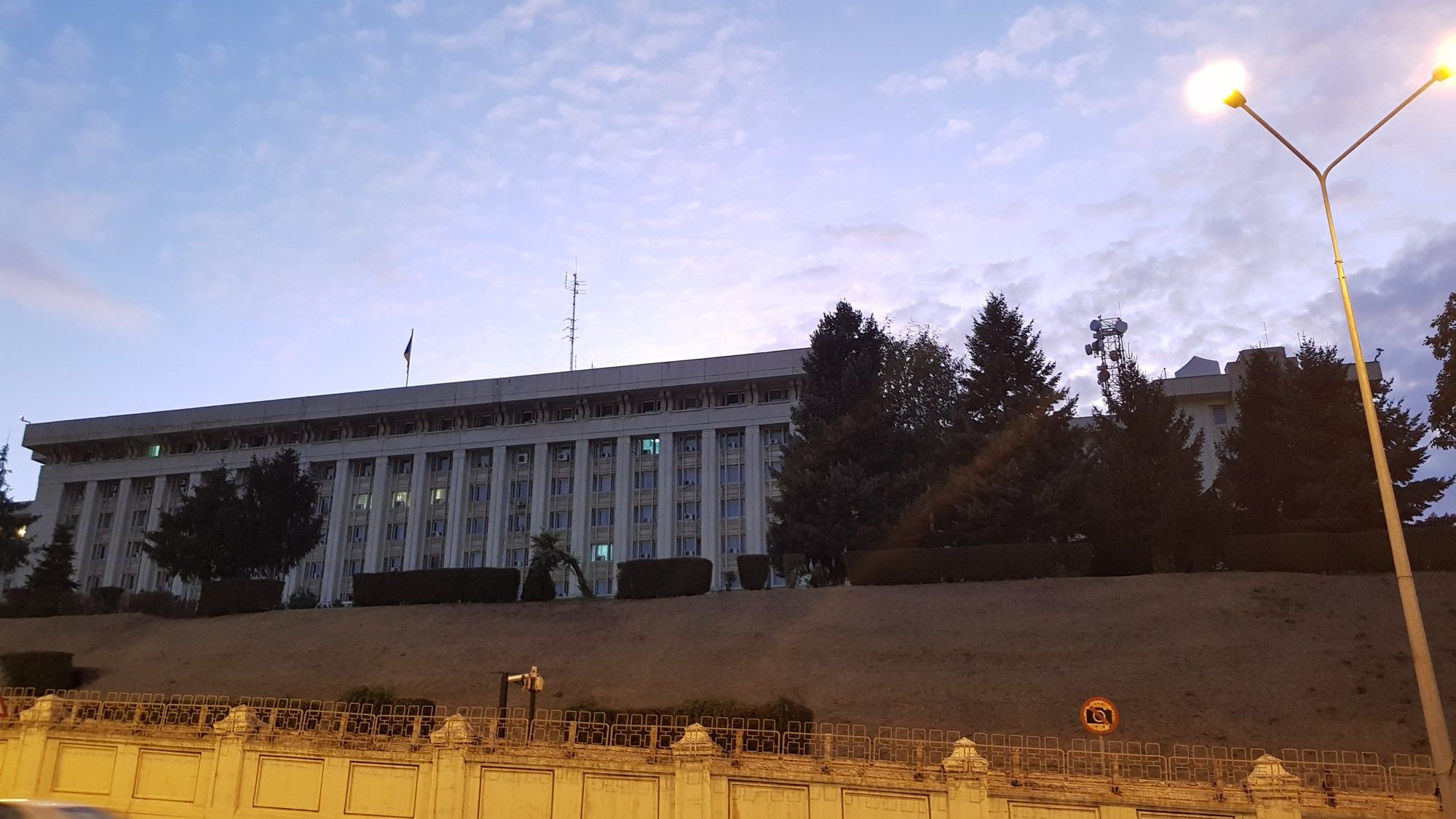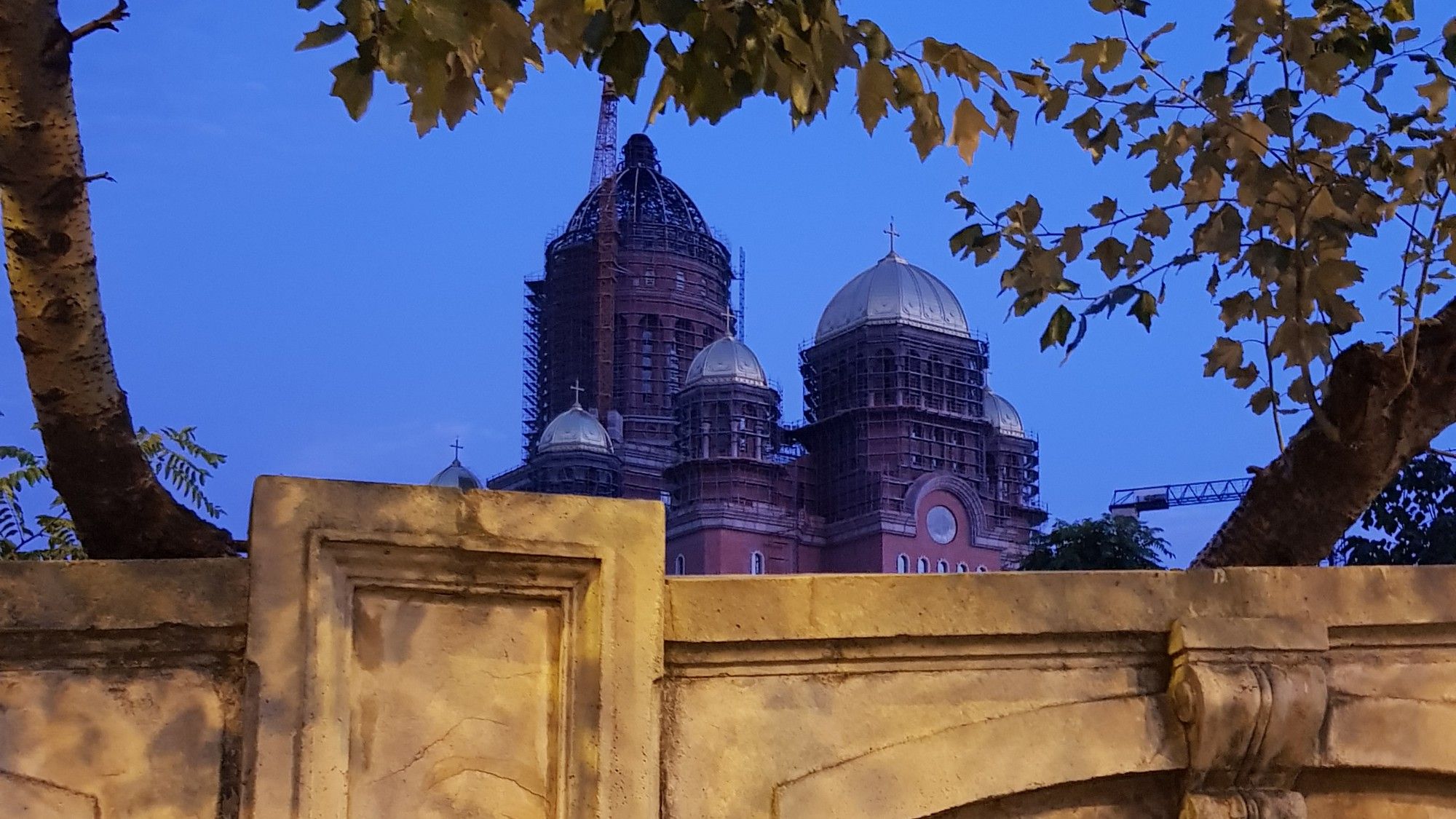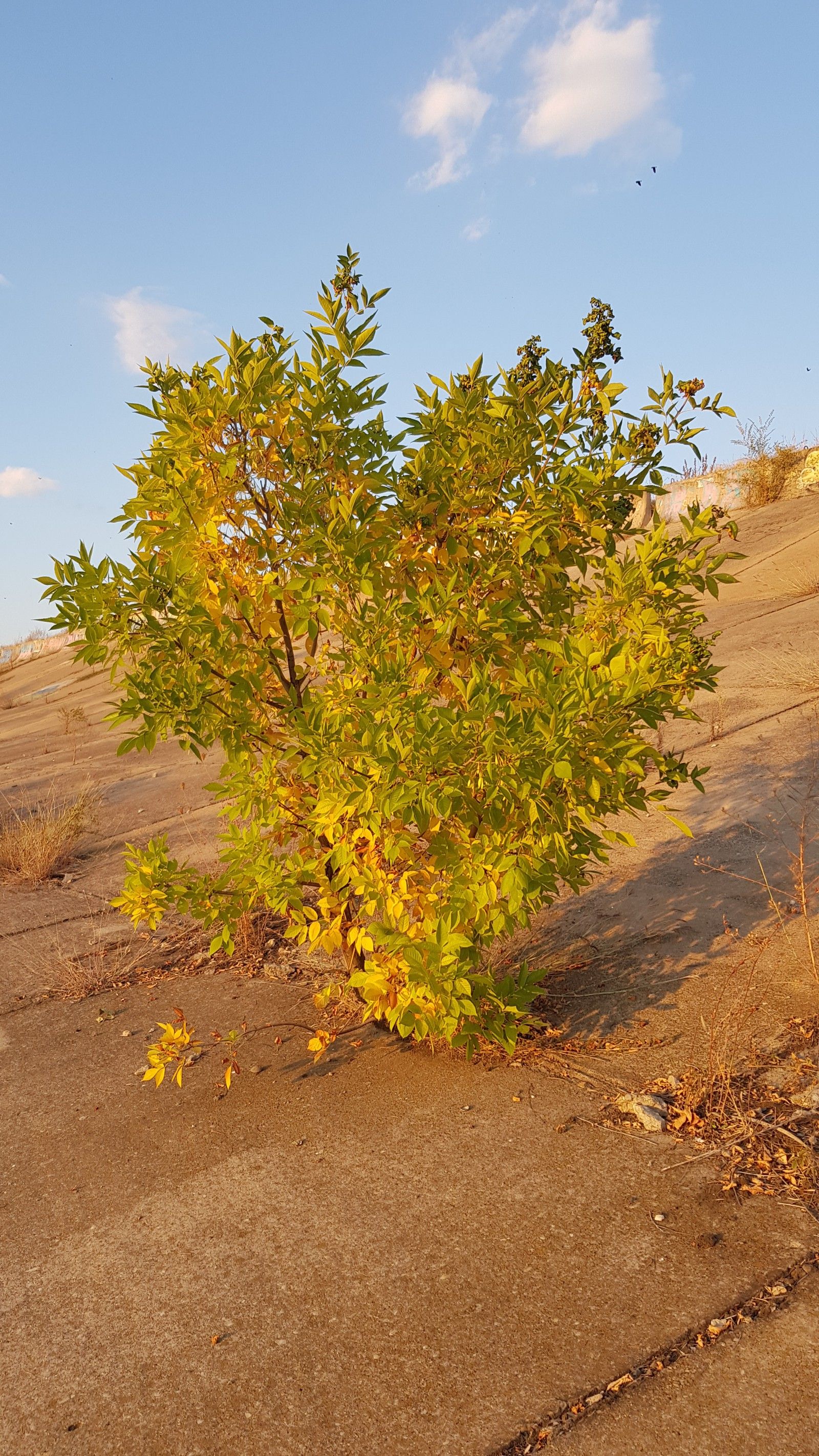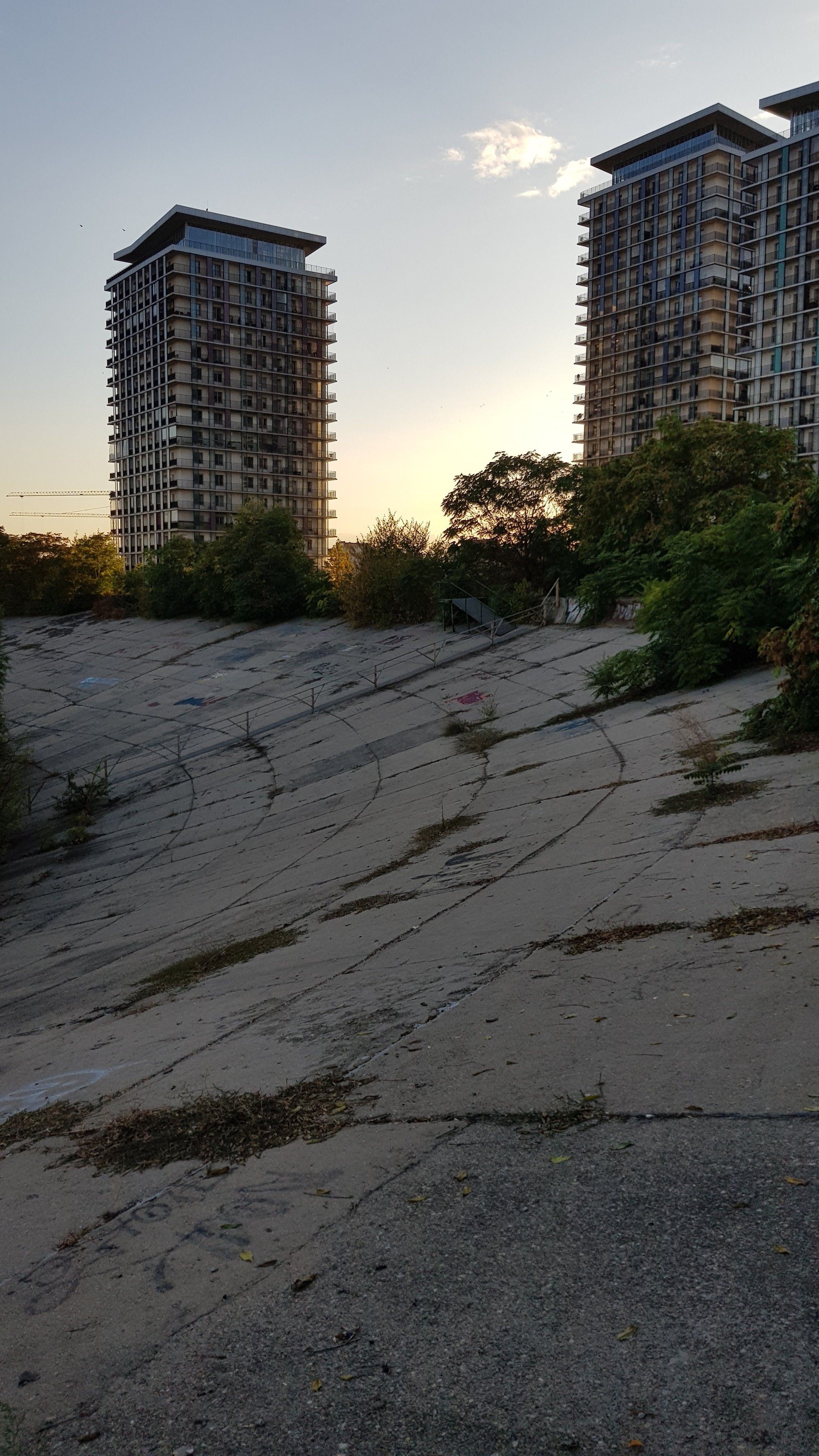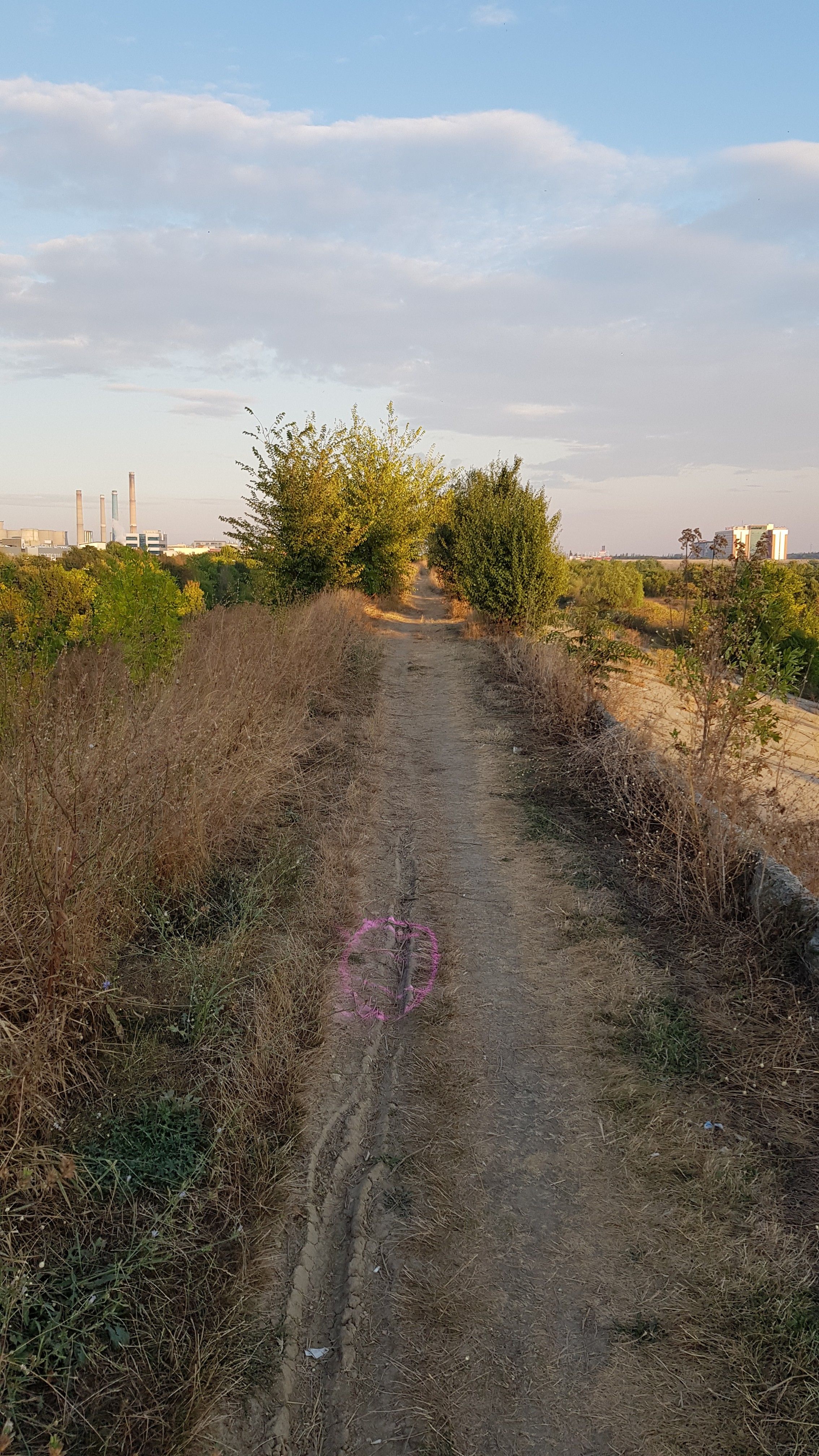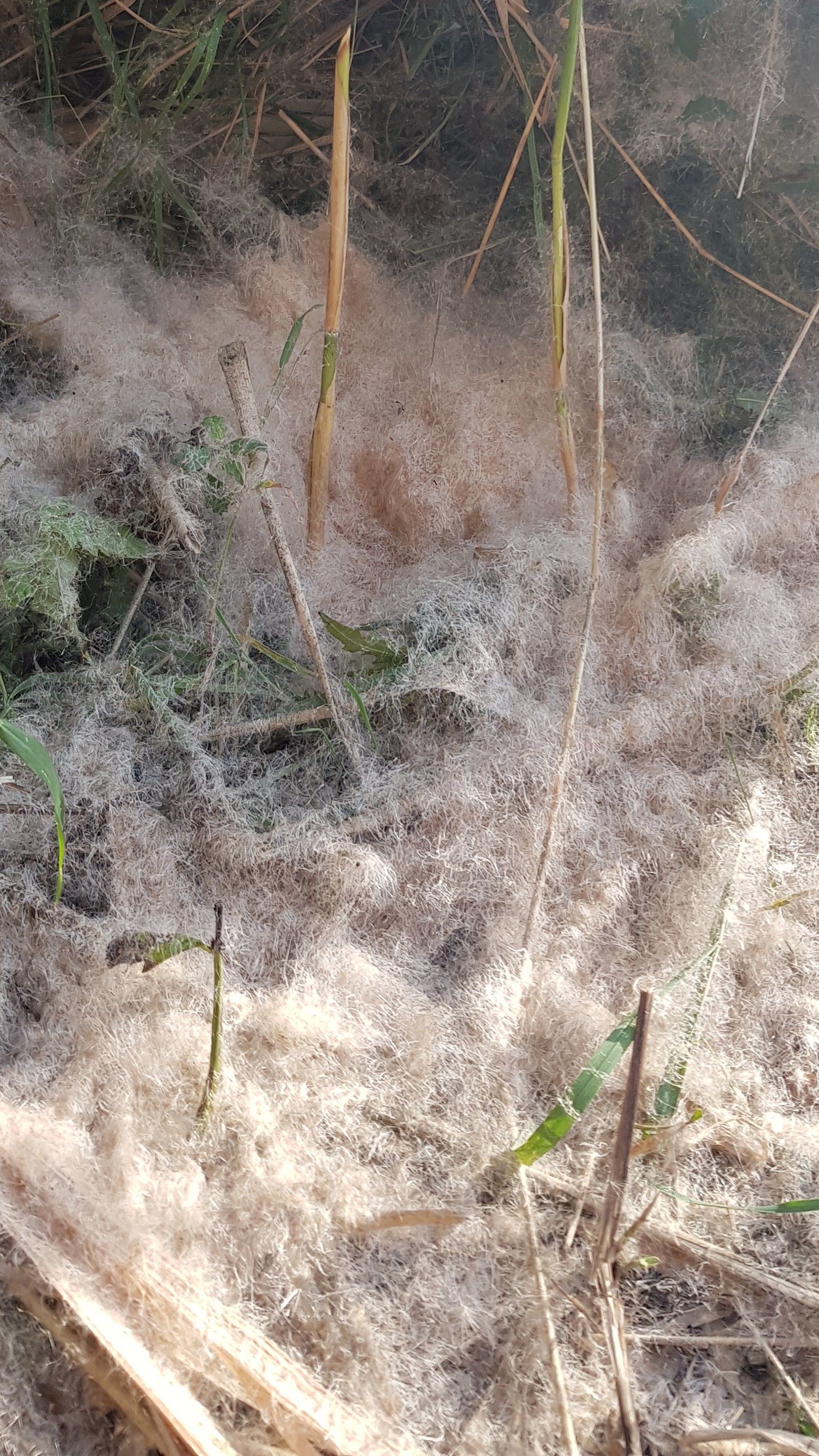Too much light, of course
but nor is
the answer
to dim.
First of September, I arrive in a sweltering city. A driver is waiting for me at the airport, he picks me up, barely uttering a word, shooting me only a smile or two, and takes me along broad avenues all the way to the entrance of the Central University Library. Initial confusion, waiting, a few uninformed people, then another smile whirls out of the building and whisks me, hampered by my clunky, heavy suitcase and backpack, past books, up and down stairs, along a corridor, out a side entrance and some metres down a street, back into the building through another side entrance and up the stairs again. With each floor the heat cranks up, the air gets thinner, the bags heavier. We stop on the fourth floor, standing between offices. My companion opens one of the doors, gestures me to step inside, writes down his number, and says his good byes.
Finally I can throw down my luggage. The air in the small hallway is even more suffocating though – to the bathroom! I open the window and look over the narrow yet bright courtyard, where pigeons, currently tucked away around its shady corners, seem to have taken over. While I wait for the water to start running so I can freshen up, I inspect the living room and bedroom. I tear the drenched-through summer clothes off my skin – stark naked I focus on the dark leather sofa in front of me. What a strange object. If I were to sit on it now, I would have trouble ungluing myself again. It is supposed to have 35 degrees outside, inside even more. The air conditioner won’t work; I tear all windows open but the air stands still. Or moves in circles, difficult to differentiate from my own sweat. It blends with the sounds of classical music, which penetrate through the open windows. Back home, I had failed to send off a submission for an open call, now its deadline is looming. I hunker down in the simmering room, “cool it down” somewhat and spend the first day right here, growing bleary-eyed enumerating references; at least the music is soothing.
While briefly going out for groceries I discover where it is coming from. On Enescu Square, opposite the library, the eponymous festival is taking place. Well, its public-minded offshoot livestreaming concerts from various venues, showcasing the orchestras the city is currently hosting.
Heat, music, light, air – everything is rushing in from the outside. The next afternoon the submission is sent. It is time.
When it is hot I often have the urge to write. Ink literally oozes out the pen, the phone sticky in my hands, the laptop wheezing. Tactility and the rhythm of a dissolving thought. In such heated circumstances I am trying to edge out enough room for it, offer it enough shade and quietness, so I don’t overheat while my vocabulary simmers. One such space is a hipster coffee place a stone’s throw away from the library, hidden under arcades behind an old church. It is quite charming, certainly comfortable, and serves coffee as expensive, though fortunately better-tasting, as in Vienna. When I turn off the internet connection and force myself to it, lines from unfinished notes are starting to fall into place. About time. I need to finish this new collection quickly, preferably also edit it while here. I am late again. Always again already.
(I will neither finish nor conclude it here. But something will happen to it, something irreversible.)
I simply fell into writing, or rather: I have been doing it since I can remember and it just never left my side, while nothing new, nothing more stable, wanted to stick. Writing is pure instability, never-ending daunting guesswork. But it also keeps me going. So I persist, I get paid to do it, as much as one can get nowadays, and go on the road for it, since the poetry industry prefers to peddle the presence of the poems’ author instead of the poems themselves. It is almost exclusively for poetry that I travel lately. How else to take responsibility for the damage caused? On a carbon footprint website I am advised against counting business flights, as these, it argues, should be chalked up to the footprint of the employer or client. When it is for poetry, I tell myself, it is for work, and for work, I lie to myself, it is OK.
What am I to a random city? I don’t want to intrude, sit down on a corner of the world, and spit out a bundle of pages that supposedly explain it. But strapped into the corset of the residency machinery, I cannot help but feel a certain degree of obligation towards the core idea of residencies: fuel has already been spent, a place to stay provided, and time bought – to be here … I must admit, I do like to travel, as it actualises this inherent, perpetual feeling of mine of never being in my place. But more and more often a question creeps up on me, how come it is me that has the right to travel? What are these flights actually for? What resources am I allowed to use for a poem? “Mobility” they say, “the connective tissue of Europe”. But on the Balkans, from the edges of which I hail, and on the corner of which I currently am, mobility is a monstrous word. I grew up on the border. I know how it feels when someone in uniform points a rifle at you, yelling you shouldn’t be playing around there. Still, I find it hard to imagine how it must feel like for someone, who doesn’t have the privilege to play freely without someone pointing a gun at them at all times.
I get on the bike and launch myself into the city.
Moving through the broad streets along the Palace of the Parliament, one quickly realises with what enmity these coarse projects cut into the urban space. When, for the sake of one or two buildings they razed entire city quarters and cut off all paths: cars, pedestrians, a few bicyclists, they all have to take the long, rectangular path around the seven square kilometre big terrain. During the demolition of neighbourhoods such as Uranus, the very spot where now the Palace of the Parliament stands, sandstorms covered the centre of Bucharest. Another good reason to stay away from these parts back then – especially at night – were the bloodthirsty packs of dogs that formed after the dogs’ owners, forcibly relocated from their homes, had to leave them behind. At the other end of the boulevard that leads to the Palace there is a parking lot, while behind the monster itself a bombastic new church is rising. It seems that even today the only purpose of this part of town is perfunctory and symbolic; it signals to the people: the car reigns supreme, religion reigns supreme, the government reigns supreme. The entire complex is a giant black hole in the middle of the city centre. On an oppressively warm evening I circle around it on paths other pedestrians seem to avoid. Oddly enough, I feel at home.
Space reigns supreme
I am used to living on the edges of the inaccessible. The village where I grew up in, nothing more than a handful of houses dotted along the river and hills on the Slovene-Austrian border, is cut off by a steep, tree-covered slope. Our family home stands beneath it, above it, wedged between the old beech trees, towers an imposing castle. Until the beginning of the year 2000 it housed an institution for the neurologically and mentally ill. It was hermetically sealed off: a humongous structure with hundreds of people in it in the midst of “a town of a dozen of ten”. The total institution was dysfunctional and the village surrounding it, too. Especially after the break-up of Yugoslavia and the slow loosening of the border. The majority of the small service economy, which made money with the border and to a lesser degree also with small-scale smuggling, crumbled. I certainly did not perceive my village as a community. Most of my time was spent with the TV, books, water, and trees…
The month goes fast, the days are still sunny but grow shorter by the day, the heat is finally turning into warmth. When I tell an audience member at a literary event I partake in of my devotion to those kind of places she tells me of her favourite spot in the city. It’s a delta she says. I instinctively think of the Danube in which I like to take a dip when in Vienna, the same Danube that, only some hundred kilometres away from here, flows into the Black Sea. It is not really a delta, she corrects herself, they only call it that way, although she cannot say why, Ceaușescu demolished something there. It is a sliver of wilderness in the middle of the city, and protected, if she is not mistaken; she likes going there. She repeats its name over and over again, so that when I walk back to my flat it doesn’t stop rustling in my ears: Văcărești.
The next day I set off on foot. The path takes me through the centre of the old town to Unirii Square and past the hemmed in and cut-up arms of the Dâmbovița River, framed by tower blocks, faculties, and industrial buildings. The walk takes some time but passes by quickly, since – as per usual – I am interested in everything. I don’t walk for the sake of adventure. On these walks one rarely stumbles upon a story. I am not in the city for that, I don’t throw myself into the midst of people, although I pass them by. Upon space I stumble. Space comes. It unfolds and envelopes me around it …
After a couple of hours I arrive at a humongous new apartment complex, which shimmers in all its black glass glory. Right next to it, thicket is expanding and taking over, it seems as if this place hasn’t been completely (re)conquered by people, yet. A winding path, surrounded by high, dry summer grass, leads off the street to some sort of embankment. It is early evening, the sun – still strong – is throwing long shadows over the view, which is trying to be established at the top. I stand on the path, which seems to lead both ways around the whole area. The concrete embankment drops off to wide open grounds covered with the same dry grass as well as bushes and low-growing trees. A bit further away, the terrain becomes marshy, and in the distance, surrounded by reeds, the water surface shimmers in the light. The colours burn brightly: everywhere you look – ripe rose hip, shimmering golden grass, leaves the shades of late summer, the sky a dark blue. Several different birds fly off to draw lazy concave lines above the treetops. Even the insects seem to whirr slower. The whole area is hemmed in by the concrete embankment, behind which, on all sides, the cityscape rises.
A young guy walks by, then I spot another one, a bit older, and watch him descend down the concrete slope, shortly after him, a third one appears, standing in the bushes he is surveying the area. “Again”, I say to myself and smile. “Gays still choose the most beautiful spots …”
The area is too vast to be meddled with. An intervention in this place is too big a thing-in-itself. What unfolded here perhaps started out as an intervention, but ended up being a sublation, three times over. The nullification of a certain time in history – the gaping flourishing chasm bearing witness to it –, the undoing of the intervention itself, which collapsed due to the impossibility of its realisation, and the downfall of those responsible for it.
I walk back on foot and only arrive at the flat in the late hours of the night.
Sipping beer from the kiosk around the corner, I sit exhausted on the towel-covered leather sofa and read everything I can find, check out satellite images and other photographs of the area. I interrupt this activity only to rehearse my mosquito-killing notebook-throwing skills and, much later, for sleep. In my mind, an image of Văcărești is assembling.
A brief history of the area (an exceptional monastery, later prison, where, among others, Ceaușescu was incarcerated as a young man, an earthquake, and the shooting of a war film, during which the last remains of this cultural heritage were blown to pieces …)
I go back.
In the middle of the oppressive heat of Bucharest, standing on the perimeter of a region that is being desertified at an ever more rapid pace and that doesn’t know how to protect itself against the pounding rays of an impervious sun, there lies Văcărești, a gigantic “failed” water “reservoir”. Sinking soil framed by concrete slabs, the space slowly transformed into a wetland boasting one of Romania’s richest ecosystems: abundant growth, numerous birds, fish, reptiles, amphibians and insects, a few Roma families, a couple of visitors who come here to relax, some gays, cruising. Văcărești knows how to deal with the sun. Enclosed like this, it reminds me of a massive sun temple, that soaks up the sun’s energy and transforms it into life, instead of storing it like the rest of Bucharest, this concrete battery-city, which emits it into the night, exhausting its over-heating inhabitants. Văcărești has sunk into this abundance on its own, meanwhile, ever since the end of the former regime (and with it the end of all construction work), no one has managed to interfere in this space with another big scheme; though some have tried. For the time being, the increasingly marshy terrain, and a handful of environmentalists, have managed to keep it that way.

A lie, that the light's
too much
on the edge
of Văcăreşti
on the warm
concrete slope
the sun falls
chill
dreadgrove
when you were little
before
on seventeen
nightly incursion
you forced yourself inside
until it became
familiar even in the dark
even if this place
is not forest is not park
then what is it?
a failed reservoir
history pulverized
sunk into a semi-marsh
congealed to a half-savannah
they call it: delta
officially a reserve
what of?
“interventions” let’s say
birds
and some guys, perhaps
cruising.
Prime places are those
where you should've
recognized what had been there
but didn't
the recent horror is no longer felt
this place strangely familiar
the compositions of its undergrowth
its few paths and even fewer structures
you strip off your shirt on the concrete
and expose yourself to the late sun.
Often in cities
I find myself in those green
wildest patches where
moving through reeds I think of
that night when above all we
slept your hard week away
in the morning you
sucked me of: I see
your choice to do
all that underpaid
communicative work
is in line with your
character of course
you're fond of your
own image who isn't
but above all: you need to give
actually it’s something else
I wanted damnit once more
standing in the reeds in this
or that city
on a warm sunny
day in September
October maybe May
I seek– no, I find myself
I said I find myself
on a small path
which temptingly sways
into a thicket promising
home
distance
peace
some animal
a clearing
rocks
and right then for a moment I
remember your cock-filled mouth
I crawl towards this
that or the other viewing point
somewhere on the edge of the park
protected area a bit further down the coast
I stumble
stumble often upon the first guy
who’s nervously turning about
then two more usually older
pious maybe sometimes poor
more often businessmen gays
still choose the most beautiful spots
they resist time embrace
each other they are like these
places themselves are
these places at once nervous
and calm lying in wait they
lovingly hunt only
consenting prey
bucolic scenes almost
drowned out by the heavy
traffic on the road just meters
away at a safe remove
above the family life on
the well kept paths around the lake
marsh pond river
scenes of strolling gentlemen
coming to the hill from early
lunches or their offices or cardboard
matts down by the water they tamp down
these elegantly interwoven paths
sit topless on a folding
chair in the middle of a small meadow
they remind me of
where I come from showing
off the fact that my own body bristles
under the rustling of the reeds
tightens up beneath this sun
piercing the sparse foliage
it contracts in water
diffuses
with the dry dusty
dirt.
Poems translated by Lawrence Schimel. Prose text translated by Barbara Anderlič. Both in collaboration with the author.
In the autumn of 2019, Uroš Prah visited Bucharest as the first guest of a newly established literary residency, organised by Traduki in colaboration with the Romanian National Museum of Literature and Headsome Communication. A year later he is returning to the city in the form of a digital essay.
Prah is the author of three poetry collections: Čezse polzeči (Ljubljana: CSK, 2012), Tišima (Ljubljana: CSK, 2015 – nominated for the Veronika Award and Simon Jenko Award), and Udor (Ljubljana: ŠKUC, 2019). In 2018, he received the Austrian Exil Poetry Award for his investigative poem Nostra Silva, written in German. In February 2019, he was the Artist-in-Residence of the Slovenian Ministry of Culture in New York, in June 2020, the IHAG Writer-in-Residence in Graz. Translations of his collections, poems and essays have been published in 15 countries. He is the cofounder of the Museum of Madness, Trate, as well as the literary magazine IDIOT, where he served as editor-in-chief, and was the programme director of the international festival Literodrome. He is currently based in Vienna.
The poems selected for Revisiting Bucharest are published in Udor.
Photos by © Uroš Prah. Design by Beri.
